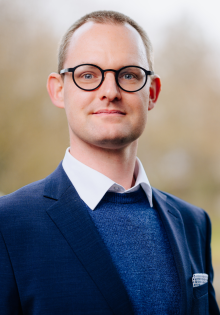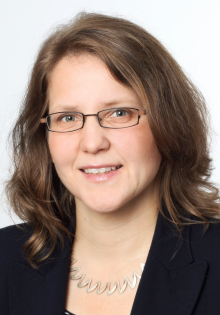STORMYTUNE: Spectral-Temporal Metrology with Tailored Quantum Measurements – EU FET Open Project
Overview
STORMYTUNE is a three-year project within the framework of the EU’s Horizon 2020 FET Open Calls. The strategic goal of STORMYTUNE is to establish quantum time and frequency measurements as upcoming quantum technology. To this end, we develop novel quantum inspired methods for the measurement of timings and spectra with a resolution that overcomes classical limitations; in addition, we design our methods such that they are user-friendly and genuinely practical, making them relevant for real-world applications.
Quantum metrology is a thriving research field. Starting as a playground for theoretical ideas, it has matured into a serious contender in the race for practical quantum technologies. First quantum gravitational sensors are at the testing stage. Quantum time and frequency measurements, however, have received little attention to date, despite their obvious applications – e.g. GPS, LIDAR, and microscopy. Led by the “Integrated Quantum Optics” group of Professor Christine Silberhorn, STORMYTUNE explores new horizons. In collaboration with partners from the UK, France, Italy, Spain, Czech Republic, and Poland, we will shift the focus from trying to use fragile quantum probe states to implementing robust quantum measurements, which provide benefits over their classical counterparts. A clever combination of quantum entanglement, advanced data processing, and tailored quantum devices will yield a toolbox for practical time and frequency measurements. Paderborn researchers under the lead of Dr Benjamin Brecht will develop these quantum devices and demonstrates their superiority in STORMYTUNE.
STORMYTUNE receives funding from the European Union’s Horizon 2020 research and innovation programme under grant agreement No 899587.
Scientific contact: Dr. Benjamin Brecht, Prof. Dr. Christine Silberhorn
Metrology explores the most efficient and precise way to perform measurements. This established area of study has considerable impact on our everyday lives. A GPS would not work without the capability to measure distances precisely, and spectral fingerprinting is an established technique to identify, e.g., drugs and hazardous materials. In recent years, researchers have begun to study metrology in the counterintuitive realm of quantum mechanics, so called quantum metrology. Surprisingly – or maybe not so, depending on whom you ask – it turns out that quantum properties such as entanglement can be highly beneficial for metrological tasks. Experiments have shown measurement precision beyond any classical measurement and to date, ever more demonstrations are reaching the ultimate precision limits set by quantum mechanics. These findings have two potential impacts: on the one hand, we can imagine measurements that simply cannot be implemented with classical means and that consequently enable hitherto unknown applications; on the other hand, we find that a better measurement can reach the same precision as a worse measurement in less time, leading to faster data acquisition. Interestingly, quantum metrology mainly focusses on measuring phases, with only few works considering spatial imaging. There is no comprehensive approach to measuring time or frequency using quantum mechanical methods, although many applications could benefit from such techniques.
This is where the work of STORMYTUNE comes in. We will develop a theoretical and experimental toolbox for time-frequency quantum metrology and explore possible avenues for improving applications using our methods. In contrast to other approaches to quantum metrology that mainly focus on using fragile probe states, we will investigate the achievable benefits when using quantum measurements and simple, robust probe states. Further, we aim to improve the performance of our techniques by adding the ideas of superresolution measurements and compressed sensing to time-frequency quantum metrology, thus reducing measurement times even more.
The STORMYTUNE consortium comprises world-leading scientists and industry partners, who are ideally positioned to achieve the project goals. For this research, we have identified three strategic objectives that will guide our efforts.
Objective 1: Develop a time-frequency quantum metrology toolbox that comprises of the tools and methods for investigating the limits of temporal and spectral measurements using quantum mechanics.
Objective 2: Investigate the limits of time-frequency quantum metrology with regards to the ultimate measurement precision, the resource consumption, and the ease of implementation.
Objective 3: Implement proof-of-concept demonstrations that show a clear benefit of quantum metrology when compared to standard measurements and that exploit techniques from superresolution measurements and compressed sensing.
Key Facts
- Grant Number:
- 899587
- Project type:
- Sonstiger Zweck
- Project duration:
- 10/2020 - 02/2024
- Funded by:
- Europäische Union (EU)
More Information
Contact
If you have any questions about this project, contact us!
Dr. Benjamin Brecht
Integrated Quantum Optics
Akademischer Oberrat - Gruppenleiter "Quantennetzwerke"

Prof. Dr. Christine Silberhorn
Integrated Quantum Optics
Professorin - Leiterin - Lehrstuhlinhaberin



